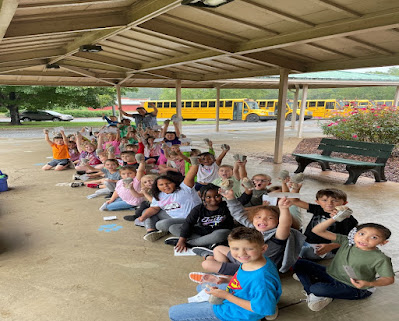Amanda Strickland, conservation education specialist for Cleveland County Soil and Water Conservation District recently completed her NC Environmental Education Certification.
Amanda is a
nonformal educator who works with schools and community-based groups and
organizations. “I work with people who are interested in learning about our
natural resources and how to protect them. I work with all ages and love the
opportunity to get students outside to learn about their environment.”
Amanda says
her favorite part of earning her certification was attending programs and
meeting people working in the environmental education field. She says the
experience that stood out for her was her community partnership project. “My
community partnership project is an ongoing project that has been a learning
curve for me. A lot of effort has gone into this project, and I hope to
continue it into the future.
For her
project, Amanda worked with teachers, parents and Rutherford County 4-H agent
Cynthia Robbins to form a new 4-H club, the Wilderness Habitat Education
Program team at Thomas Jefferson Classical Academy, a public charter school in
Rutherford County. “I was approached by several parents and a teacher about
starting this club for elementary age children to help get them outside, make
observations and learn more about nature and their environment and our impact
as humans on our environment.”
Amanda taught the students how to identify different animal and plant species and what they need to thrive in their habitats. Another bonus is that this knowledge will help these students with their End-of-Grade (EOG) testing in science and in reading. We spent time with students and helped them gain practical knowledge that they can retain, and I think that is fantastic. This benefits the community and offers some like-minded students the opportunity to form strong bonds with one another and maybe become our future environmental leaders!”
Amanda says the certification program changed her approach to teaching. “It has taught me how to be better organized and how to better develop programs that meet the standards of environmental education. I like the structured way of developing and teaching programs that I learned as well as alternate ways to teach topics and variations of the same program that can be adapted to age and competency level of the audience.”
Amanda looks forward to preparing these students for the North Carolina Wildlife Habitat Education Program Competition in the spring.




